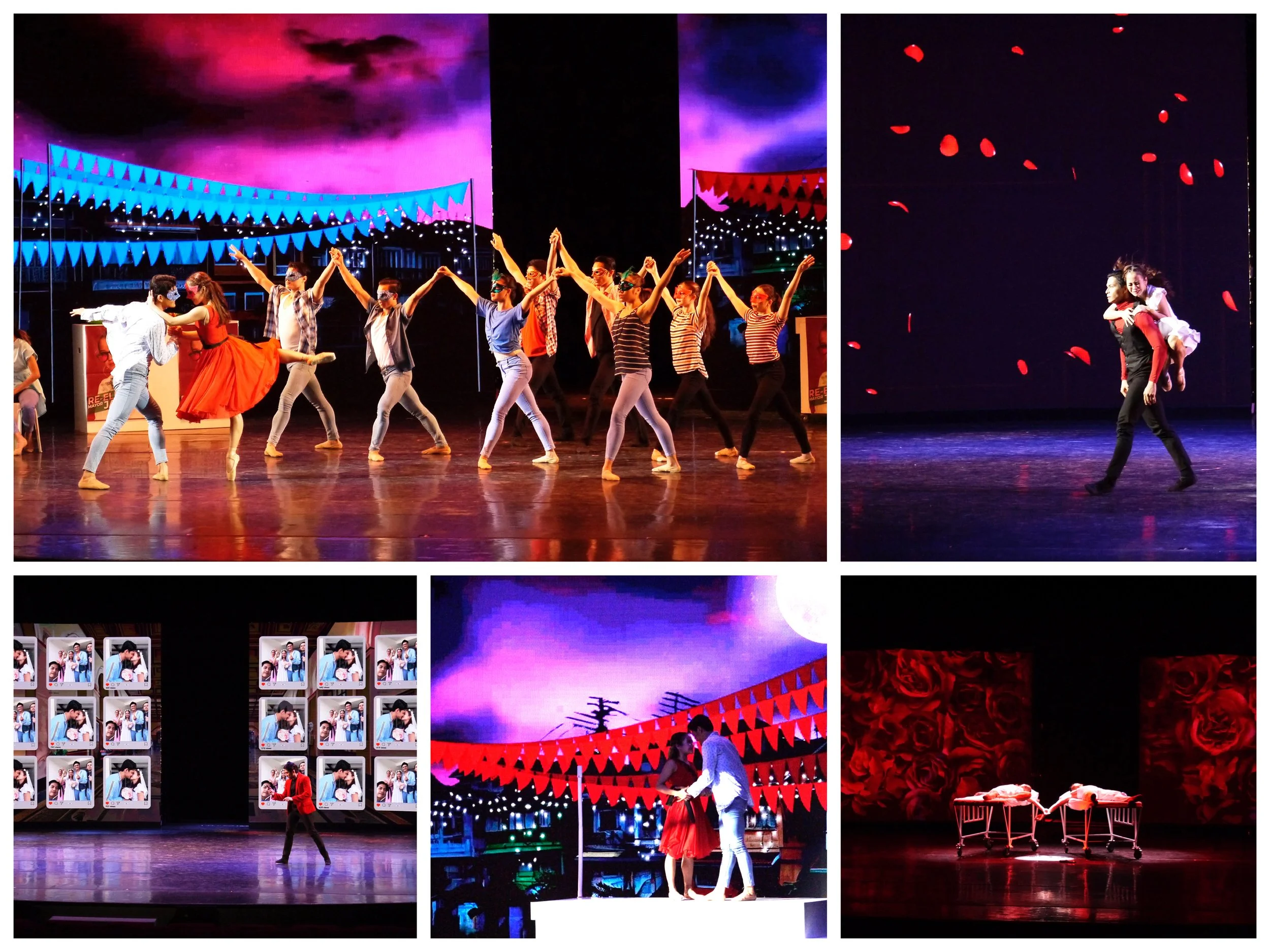5 reasons to watch Martin Lawrance’s ‘Romeo & Juliet’
British choreographer Martin Lawrance’s fresh spin on Shakespeare’s romantic tragedy takes the spotlight anew. In a special partnership between Ballet Manila and Areté, Romeo & Juliet goes on a limited run at the Hyundai Hall of Areté at the Ateneo De Manila University on September 16, 3 p.m. and 8 p.m., and September 17, 3 p.m.
Here are five reasons why this version of R&J is a must-see!
1. That Pinoy flavor
The story is transplanted from Verona to present-day Metro Manila, with a banderitas-bedecked fiesta serving as a boisterous backdrop. Other aspects of Philippine culture are present such as the sabong (cockfight) which underscores the rift between the warring families renamed as Montano (Montagut) and Kapuleto (Capulet).
Romeo (Joshua Enciso) and Juliet (Jessica Pearl Dames) meet for the first time at a colorful town fiesta.
2. Alternative balcony scene
Meeting at the fiesta, Romeo and Juliet are instantly smitten with each other. With the help of friends, messages are exchanged via mobile phone and the two agree to see each other again at the town plaza in the dead of night. The makeshift stage substitutes as the balcony while the OPM classic Sana’y Wala Nang Wakas plays out as the young lovers dance in abandon.
A rendezvous is arranged between Romeo and Juliet.
3. Social-media romance
How does this modern-day love story develop? Quickly — with the aid of high-tech gadgets. Text messages are conveyed through mobile phones to arrange an initial tryst and soon enough, a secret wedding! The occasion is documented through selfies which later lead to the couple’s undoing when the photos become viral.
Tybalt (Romeo Peralta Jr.), who is allied with the Kapuleto family, finds out about Juliet’s secret wedding to Romeo when he sees photos posted on social media via his cell phone.
4. Father-daughter pas de deux
Juliet’s father fumes when he finds out that his daughter has disobeyed him, hooking up with someone unacceptable to the family instead of the favored Paris. Juliet, who’s hopelessly in love with Romeo, tries to calm her dad, clinging to him in supplication. The two engage in a dance churning with such turbulent emotions.
Juliet (Jessica Pearl Dames) appeals for understanding but her furious father (Mark Sumaylo) seems unmoved.
5. Tragic end with a twist
Instead of at the family tomb, the final scene of this contemporary Romeo & Juliet unravels in a hospital where Juliet is rushed after taking an overdose of pills. In this sterile environment of steel beds covered in white sheets, mistaken beliefs lead to confusion, anguish and ultimately, death, symbolized vividly by the color red.
Swearing eternal love to each other, though forbidden, Romeo and Juliet are united in death.
Photos by Giselle P. Kasilag






